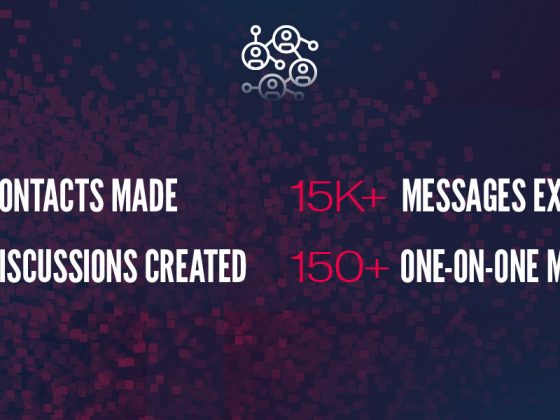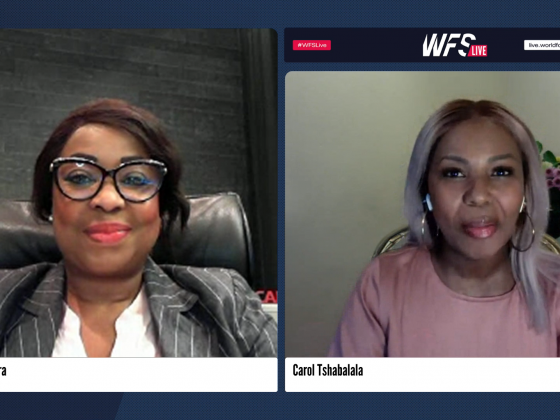Jordan Gardner is an American entrepreneur who has undertaken a variety of investments in European football, and is co-owner of Danish side F.C. Helsingor.
With Gardner one of the first confirmed speakers for WFS Live – taking place from November 23-27 – we caught up with him to discuss his investments and vision for the football industry.
Q. Why did you choose to invest in Denmark and F.C. Helsingor in particular?
A. Over the last few years, I’ve spent a lot of time on the ground in Europe, understanding the landscape and trying to learn from the mistakes made by prior American ownership groups over there. I’ve made several strategic minority investments into football clubs (Swansea City AFC and Dundalk FC), and eventually decided the time was right to buy a controlling interest of a club. Denmark was an attractive market, as almost everyone speaks English, there’s very few foreign player restrictions and there is a culture of playing (and selling) young players. FC Helsingør in particular was an attractive club, as it had very recently been in the Danish SuperLiga, had a new stadium under construction and was in good geographic proximity to Copenhagen.
Q. What are the main challenges that you’ve faced until now?
A. Once we took over, it was very challenging to change the culture at a club that had been losing for so long, and had gone through two relegations in a row. We felt it was very important change the entire leadership of the club both on and off the field, including many of the players. Once we made those changes, we saw a huge positive shift in the environment at the club, which ultimately culminated in our league championship and promotion last season.
Excited to be a featured speaker at the World Football Summit Live 2020 #WFSLive@WFSummit https://t.co/KS2QnsFQol
— Jordan Gardner (@mrjordangardner) October 8, 2020
Q. How would you evaluate the results you have reached up to now and what is your long-term objective there?
A. The project has been an unqualified success so far. We won the Danish 2nd Division last season and got promoted. This season, we are 4-2 so far having beaten three clubs already with significantly higher budgets and players wage bills than us. Our goals are to finish top 6 this season, and challenge for a top 2 spot and promotion to the Danish SuperLiga.
Q. How has COVID-19 affected your plans at FC Helsingor? How are you facing the challenges the pandemic has presented to your business?
A. There have been significant limitations on stadium capacity at our home matches, which has adversely affected our match day revenues. Beyond that, the COVID related travel restrictions has affected our ability to bring in foreign players.
Q. Do you think that European soccer is getting closer to the American model conceiving sport mostly as an entertainment business?
A. No, I think European soccer is still very, very far away from an American style model. The sport in Europe is more culturally ingrained, cultivated over generations. People in Europe (in general), do not support clubs or attend events for entertainment value in a way they do in North America.
That feeling when you wake up at 5am to see a @FCHelsingor_Eng and it's all worth it 🙌 pic.twitter.com/6hemSYt9Fq
— Jordan Gardner (@mrjordangardner) October 4, 2020
Q. Do you believe that a European Super League that resembles the NBA (a closed championship with only the best teams/franchises involved) will ever be a reality? Would it be desirable for the market?
A. In a sense, the Champions League is a form of a European Super League. It’s certainly possible the top clubs may split off at some to form their own ‘league’ but I don’t think it’s necessary with competitions like the Champions League in place. Ultimately, the biggest clubs will do whatever they can to capture the most television/media revenue and if that means forming a Super League they will do that.
Q. The industry of American soccer is experiencing a constant growth and keeps attracting new investors. Do you see it reaching the influence of European soccer in a near future?
A. No, soccer still lags significantly behind other major sports in the United States, and even European soccer far outpaces American soccer in interest and viewership. American soccer will need major improvement in on-field quality, and off-field relevance to even approach the influence of European soccer for the foreseeable future.

A bit Danish and a bit American: this is Jordan Gardner’s Helsingor.
Q. Is this the reason why many Americans like you still prefer to invest in Europe rather than in the US?
A. European soccer offers a very different investment profile for Americans than North America. With the promotion / relegation system, there is an opportunity to buy a smaller club and add expertise and value to get that club promoted. There is also a robust player transfer market in Europe that does not exist in North America. American soccer is a more secure investment, with a franchise model. However, currently the television viewership and general interest is quite low compared to European soccer while the price points in Europe continue to be more attractive.
Q. You have been announced as one of the guest speakers at the upcoming WFS Live, which aims to bring the industry stakeholders together to draw football’s roadmap for the future. What changes do you think are most needed to ensure that the game’s future is at least as bright as its past?
A. I think there needs to be significant changes in the way money flows to players and agents in the sport. Many clubs spend well beyond their means, and beyond any justifiable revenue that they have coming in. I’m not sure if a more ‘salary cap’ type structure like those proposed in the U.K. are the solution, but the spending is just not sustainable especially in light of massive reductions in revenues due to the pandemic.
Tickets are now available HERE for WFS Live, with 10% of all sales going to Common Goal.


